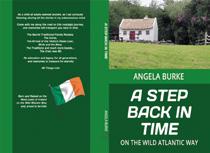
8 minute read
News
News Now
Report stresses the importance of correct diet for older people
A report published by the Food Safety Authority of Ireland (FSAI) stresses the importance of correct diet to enhance older people’s nutritional well-being with the ultimate aim of improving health in later life.
In general, dietary intake goals for older adults are similar to those for the general adult population, but particular nutritional issues relating to ageing such as, the need for a more protein-dense diet to prevent frailty, require more specific food-based dietary guidelines. Other matters associated with advancing age, such as decreased mobility, frailty and possible dependence on residential care, must be specifically addressed in dietary recommendations. Key recommendations from the report include:
• Older adults who are obese with weight-related health problems should receive individual intervention to ensure weight reduction undertaken is beneficial and minimises loss of muscle tissue (slow weight loss with physical activity). Lower risk older adults who are overweight are advised to avoid weight-loss diets in order to prevent loss of muscle mass.
• Older adults at risk of ‘low intake’ dehydration need adequate amount of drinks. Women need 1.6ltrs and males 2ltrs per day (unless a clinical condition to require fluid restriction).
• Strong tea should only be consumed between meals and not during meals, as it interferes with absorption of iron and zinc.
• Sense of taste diminishes with age and can lead to increased salt intake; therefore, consumption of salty foods should be avoided and alternatives such as herbs and spices can be used to increase flavour.
• High quality proteins to stimulate muscle protein: Healthy older adults should eat a more protein-dense diet – foods such as meat, poultry, fish, dairy and eggs.
• Adequate calorie intake to prevent development of frailty, muscle loss (sarcopenia) and undernutrition.
• Diets should contain high fibre carbohydrates, but low in free sugars. The average intake of carbohydrates are at the lower end of recommended consumption range whilst one third of older people exceed recommended free sugar intake.
• A daily 15 g vitamin D supplement is now recommended by the Department of Health for all older adults in Ireland. This report provides specific details on the range of dietary intake recommended for vitamin D in older adults, which vary according to ability to obtain some of this vitamin from sunlight exposure. • Fortified foods are a good source of B vitamins (B12, folate, B6 and riboflavin) and vitamin D; whilst unsweetened orange juice, salads, fruit and vegetables are reliable daily food sources of vitamin C.
Over 65s are the fastest growing age group in Ireland, having increased by 19% in the 2016 census to some 630,800 people (13.8% of total population), with expected ongoing increases to a predicted 1.6 million older citizens by 2051. Older adults represent a diverse group, some healthy and fit with a good capacity for physical activity and some living with chronic conditions and diseases, which compromise activity levels and mobility and have an impact on nutritional requirements. This report covers these factors and describes various dietary approaches that are optimal for managing the differences in nutrient requirements of the older population in Ireland.

Scientific Recommendations for Food-Based Dietary Guidelines for Older Adults is freely available to view and download at https://www.fsai.ie/DietaryGuidelines_OlderAdults_Ireland/ Or telephone Jane Ryder of The Food Safety Authority of Ireland at 087 2429180
Programme for retraining and upskilling adults for the workplace
Navigate Your Work Future is designed specifically for those in their 50s and upwards who may have lost their jobs and is open to all. The first lecture is by Sinead English, career consultant and founder of Hilt Career Management Consultancy. Sinead will speak about ‘Creative Job Search, How to network your way into a job’. She will cover * putting together a job search action plan * finding your confidence * approaching potential contacts and networking in a pandemic The series is organised by Third Age Ireland. For more information, contact Liam Carey, telephone 087-7998567 lcarey@thirdageireland.ie www.thirdageireland.ie
Croí heart/stroke charity wins international accreditation
Croí, the heart disease and stroke charity, has received a major international recognition in being the first Irish organisation to be accredited by the European Association of Preventive Cardiology (EAPC) for its work in cardiovascular risk management and prevention.
Croí is one of only eleven organisations across Europe to be awarded the status for its Croí Heart & Stroke Centre in Galway.

The purpose-built facility opened in November 2012 and is a leading centre for heart and stroke prevention, research, education, support and rehabilitation. The centre is also home to the Croí Courtyard Apartments which allow family members to be as close as possible to patients receiving cardiac or stroke care in University Hospital Galway.
Since the onset of the pandemic, Croí has nimbly responded to the needs of patients and carers through a range of supports and services. Last year, Croí’s Heartlink West free telephone and virtual support service responded to over 3,000 queries. Additionally, 384 people at risk of, or living with, cardiovas cular disease participated in a range of online structured lifestyle, education and recovery programmes. These include the innovative cardiac prevention and rehabilitation programme, Croí MySláinte, and the specialised obesity programme, CLANN. The Croi MySláinte programme was one of a number of specially selected initiatives funded through Sláintecare innovation funding. The announcement follows an assessment and benchmarking of Croí’s cardiovascular risk management and prevention work under a range of performance
Neil Johnson, CEO of Croi with the award
For more information on the work of Croí, visit www.croi.ie

Well-being, autonomy and community’ are key when designing housing with support for older people
A new evidence review conducted by the Health Research Board (HRB) explores the perspectives of older people from around the world on housing with support and examines the impact of this kind of housing on their well-being.
The review will support development of a policy framework for housing for older people in Ireland, which is being jointly developed by the Department of Health and the Department of Housing, Local Government and Heritage.
Housing with support refers to non-institutional accommodation where older people have their own front door and access to support or care services, with the aim of providing independent, accessible housing options that can improve quality of life. The implementation of this kind of housing has been rapidly expanding in recent years – a trend that is likely to intensify in the context of COVID-19, which has made clear the risks of relying primarily on nursing homes. Key findings from the international evidence review include:
• Individual choice and autonomy are important for successfully transitioning to housing with support.
• The change is made easier where the housing location allows older people to maintain their existing social networks.
• While personal care and support services are a key aspect of housing with support, opportunities to socialise are also essential for well-being.
The report findings are brought together in an aspirational model of housing with support that will inform future policy, with the ultimate aim of improving quality of life for older people.

Alcohol consumption still remains ‘significantly higher’ than Government target
Stepping back to live in the past
A new report from the Health Research Board (HRB) has found that while alcohol consumption levels in Ireland have plateaued since 2013, people’s consumption ‘remains significantly higher’ than the Government’s 2020 target of no more than 9.1 litres of pure alcohol per person a year. In 2019, on average every person in Ireland aged 15 and over drank 10.8 litres of pure alcohol a year – the equivalent of either 40 bottles of vodka, 113 bottles of wine or 436 pints of beer. Given one in four people in Ireland don’t drink at all, actual consumption rates among those who do drink would be much higher than this.
Key findings include: • Continued high levels of consumption and hazardous drinking habits • Increasing demand on hospital services due to alcohol-related harm • The importance of minimum unit pricing as a tool to reduce harmful consumption • Initial insights into how drinking patterns have changed during the COVID-19 pandemic
Ireland ranks 9th among OECD countries in terms of alcohol consumption and 8th in the world when it comes to monthly binge drinking, defined as consuming more than six standard drinks in one sitting.
The report provides a number of insights into how consumption patterns vary between age groups and genders. For example:
• Older adults aged 65 and over tend to drink less; however, of those who do drink, one-third are hazardous drinkers, with over 40% of men over 65 engaging in monthly binge drinking. • Three in five drinkers over 60 years who take medication that interacts with alcohol have reported that they continue to drink while on such medication.
Read the full report on the HRB website www.hrb.ie
A Step Back in Time is written my Mayo woman Angela Burke and deals with things many remember or have forgotten. The author is the founder of Greenway Gifts. These gifts are all unique ideas reflecting the cottage type industry in Mayo and contribute to the local economy. Angela is no stranger to celebrity endorsement – her Greenway Gifts products were presented to President Barack Obama, President Michael D. Higgins, and Sonia O'Sullivan. A Step Back in Time is 153 pages packed with everything you ever wanted to know about Irish life in days of yore. Making hay, cutting turf and even a dog’s funeral. When you order the book directly from http://www. greenwaygifts.ie, you will receive a copy, signed by the author.










